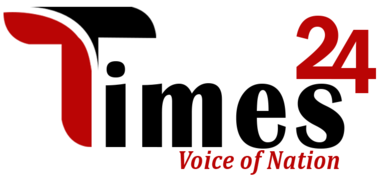Has your sleep been disrupted because one of your parents\sibling\partner was a heavy snorer? Have family members laughed and joked about their snoring, suggesting that they are ‘deep sleepers’? If you have answered yes to either of these questions, then you need to know about sleep apnea and the problems individuals of all age-groups endure if they have this condition.
Sleep apnea refers to a type of sleep disorder where a person’s breathing stops involuntarily due to over-relaxation of throat muscles. Such pauses in breath occur multiple times throughout the night leading to disrupted and poor-quality sleep.
While there are several types of sleep apnea, the most common one is obstructive sleep apnea (OSA). Its symptoms include daytime sleepiness, loud snoring, episodes of stopped breathing during sleep, abrupt awakenings that are followed by choking, waking up with a sore throat or a dry mouth, morning headache, mood swings and irritability, as well as high BP, sweating at night, and a decreased sex drive.
It is also a condition that is not acknowledged or well-known amongst the non-medical community. In 2007, according to a Lancet report, WHO estimated that more than 100 million individuals were affected by obstructive sleep apnea worldwide, but this estimate was acknowledged to be only an approximation based on data available at the time.
Today, the problem is as great as it was more than a decade ago. Studies show that 1 in 5 individuals aged between 30 and 65 years is a snorer and has obstructive sleep apnea. What’s more: 80 per cent of those who suffer from sleep apnea aren’t even aware that they have the condition.
The need for a good night’s rest
We spend a third of our lives sleeping, so we might as well do it right, correct? Let’s face it: a good night’s sleep is essential for all individuals to be productive during the day. Lack of this sleep will only cause further health complications. Also, a word of caution: if you do not attend to your sleep apnea, there are long-term effects that include mental health issues, heart conditions, a rise in blood pressure, and in more extreme cases, a stroke. So, if someone tells you that your snoring is bothering them, don’t live in denial. Get it checked with a doctor and find a long-term solution for the condition that is obstructive sleep apnea.
A recent study by Fitbit revealed Indians get the least amount of nightly sleep on average (after Japan) at 7 hours 1 minute, which is 48 minutes lesser than the average nightly sleep of users in the UK and 32 minutes lesser than average nightly sleep of Americans.
Indians get 77 minutes of Rapid Eye Movement (REM) sleep on average, which is the lowest in the world just like Japanese, who get the same amount of average REM sleep. REM sleep is a crucial aspect for emotion regulation, memory, and the peak stage of protein synthesis at the cellular level that ensures that multiple processes in the body work properly, according to the report.
A Lancet study also showed the prevalence of undiagnosed sleep apnea. According to the study, there are an estimated 9.6% of Indians in the age group of 30-69 who have sleep apnea. Furthermore, an estimated 5.4% of all Indians ages 30-69 (28.8 million) have moderate to severe sleep apnea, meaning they experience at least 15 apneas an hour. In other words, they stop breathing for 10+ seconds at least once every 4 minutes on average. If you apply a broad global undiagnosed rate of 80%, that’s over 41.2 million Indians with undiagnosed, untreated sleep apnea, according to the study.
Challenges faced by doctors
The biggest challenge that doctors face in diagnosing sleep apnea is that neither patients complain of snoring, therefore doctors are unable to acknowledge it. It would be difficult for a doctor to pre-empt irregular breathing while sleeping to diagnose you as a patient with sleep apnea. Furthermore, we only have a handful of sleep specialist practicing sleep medicine in India as there is no speciality/ masters course in India, which is why it tends to get ignored more as a lifestyle and stress induced problem rather than sleep apnea.
As a result, sleep apnea could be misdiagnosed as a lifestyle condition or a mental health issue, and tablets for those conditions are prescribed, resulting in further medical complications.
So how do you fix the problem?
Firstly, acknowledge that you snore. Many individuals refuse to acknowledge this, despite family members arguing that they have had sleepless nights due to the loud snoring. Secondly, is seeking help to diagnose and thirdly is to follow a consistent and continuous treatment regime.
ResMed also offers a Sleep Coach consultation that is a service offered 12 hours a day, serving anything between 300 to 400 calls. Our experts will listen to your issues and guide you through the diagnosis of your sleep journey.
In fact, you can opt a home solution. Check out ResMed’s pioneering sleep therapy solutions that are accurate, and can give you insights into your sleep patterns so that you can show it to a doctor for a long-term solution. Take the first step forward to check your sleep health by choosing One Sleep Test To know more, check out ResMed’s innovative Sleep awareness campaign #WakeUpToGoodSleep here or call at 1800-103-3969.
By taking the first step of treating yourself for sleep apnea, you will be making a positive impact on both your personal and professional life.





